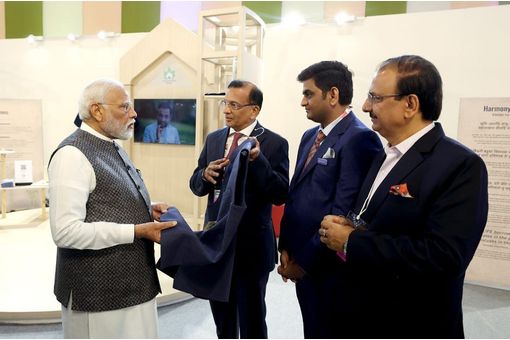Interviews
RMG firms failing to deliver on living wage promise: study
18 Jun '19
3 min read

Pic: University of Sheffield
Global garment companies are failing to meet living wage promises to workers, according to a study published by researchers at the University of Sheffield last month. The experts said it would take a ‘step-change in approach’ for major corporations, including Nike, Primark and Adidas, to pay wages that ‘meet the basic needs’ of workers and their families.
Over the last decade, leading global corporations have made commitments to deliver living wages to the workers who make their clothes.
But an investigation by the researchers at the Sheffield Political Economy Research Institute (SPERI) at the UK university found that many companies do not have concrete, measurable action plans for achieving a living wage in their global supply chains, or benchmarks for calculating living wage rates, according to a press release from the university.
The researchers investigated the commitments and actions of 20 of the world’s leading garment companies. Of those, 17 are members of initiatives that profess a commitment to living wages.
The 20 companies are Amazon, Adidas, C&A, Decathlon, Fruit of the Loom, GAP, G-Star RAW, Gucci, H&M, Hugo Boss, Inditex, Levi Strauss, Nike, Primark, Puma, PVH, Tchibo, Under Armour, Fast Retailing/Uniqlo and Zalando.
Just three companies have a supplier code of conduct that requires workers to be paid wages that meet the Clean Clothes Campaign’s definition of a living wage. H&M, C&A and G-Star RAW promise to cover the basic needs of workers and their families, provide some discretionary income and specify that this wage should be earned within a normal working week.
The study found that a lack of transparency around the wages workers receive makes it extremely difficult to evaluate companies’ progress towards meeting their own living wage promises.
Instead of altering their purchasing practices to make it possible for suppliers to pay living wages, most garment corporations are outsourcing their living wage commitments to external initiatives.
Some are part of multiple external initiatives, each with different definitions and approaches to living wages, which mean that corporate commitments lack clarity. SPERI’s analysis shows that corporate supplier codes of conduct are often out of step with the requirements of the external initiatives they are involved with.
“There is little evidence that corporate commitments to living wages are translating into meaningful change on the ground. As such, consumers are purchasing products they may believe are made by workers earning a living wage, when in reality, low wages continue to be the status quo across the global garment industry,” said project leader Genevieve LeBaron, professor of politics at the university and director of SPERI. (DS)
Over the last decade, leading global corporations have made commitments to deliver living wages to the workers who make their clothes.
But an investigation by the researchers at the Sheffield Political Economy Research Institute (SPERI) at the UK university found that many companies do not have concrete, measurable action plans for achieving a living wage in their global supply chains, or benchmarks for calculating living wage rates, according to a press release from the university.
The researchers investigated the commitments and actions of 20 of the world’s leading garment companies. Of those, 17 are members of initiatives that profess a commitment to living wages.
The 20 companies are Amazon, Adidas, C&A, Decathlon, Fruit of the Loom, GAP, G-Star RAW, Gucci, H&M, Hugo Boss, Inditex, Levi Strauss, Nike, Primark, Puma, PVH, Tchibo, Under Armour, Fast Retailing/Uniqlo and Zalando.
Just three companies have a supplier code of conduct that requires workers to be paid wages that meet the Clean Clothes Campaign’s definition of a living wage. H&M, C&A and G-Star RAW promise to cover the basic needs of workers and their families, provide some discretionary income and specify that this wage should be earned within a normal working week.
The study found that a lack of transparency around the wages workers receive makes it extremely difficult to evaluate companies’ progress towards meeting their own living wage promises.
Instead of altering their purchasing practices to make it possible for suppliers to pay living wages, most garment corporations are outsourcing their living wage commitments to external initiatives.
Some are part of multiple external initiatives, each with different definitions and approaches to living wages, which mean that corporate commitments lack clarity. SPERI’s analysis shows that corporate supplier codes of conduct are often out of step with the requirements of the external initiatives they are involved with.
“There is little evidence that corporate commitments to living wages are translating into meaningful change on the ground. As such, consumers are purchasing products they may believe are made by workers earning a living wage, when in reality, low wages continue to be the status quo across the global garment industry,” said project leader Genevieve LeBaron, professor of politics at the university and director of SPERI. (DS)
Fibre2Fashion News Desk – India
Popular News
Leave your Comments
Editor’s Pick
































-Ltd..jpg?tr=w-120,h-60,c-at_max,cm-pad_resize,bg-ffffff)





.jpg?tr=w-120,h-60,c-at_max,cm-pad_resize,bg-ffffff)
.jpg?tr=w-120,h-60,c-at_max,cm-pad_resize,bg-ffffff)






